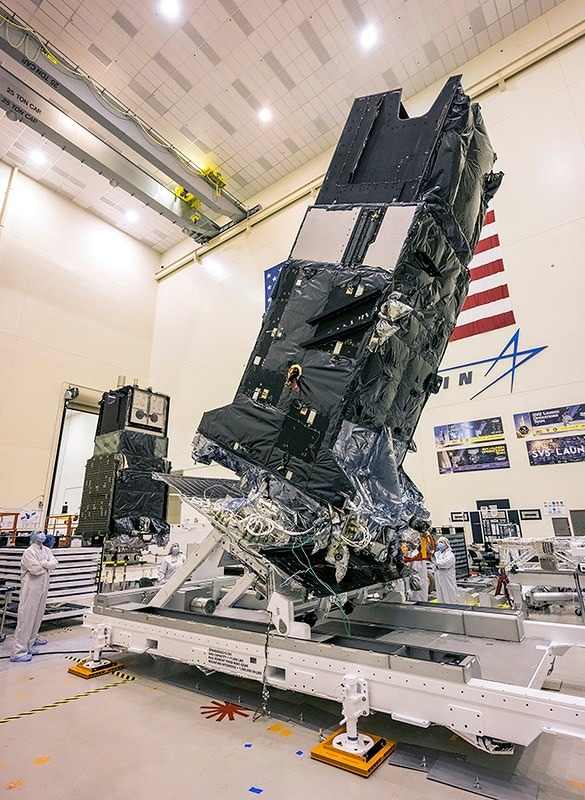Following a successful launch from Cape Canaveral Space Force Station in Florida today, the U.S. Space Force is now communicating with the sixth Space Based Infrared System Geosynchronous Earth Orbit (SBIRS GEO) -6 satellite, built by Lockheed Martin.

Image Credit: Lockheed Martin Corporation
The final satellite in the SBIRS program series, GEO-6 joins the U.S. Space Force's constellation of missile warning satellites equipped with powerful scanning and staring infrared surveillance sensors.
"The need for Overhead Persistent Infrared systems has never been more critical," said Michael Corriea, vice president of Lockheed Martin Space's Overhead Persistent Infrared (OPIR) Mission Area. "At Lockheed Martin, we are making advancements to keep pace with evolving needs based on emerging threats in our military customers' environment, helping pave the way for the future."
The GEO-6 satellite is a stepping stone toward the resilient missile warning to be provided by SBIRS' successor, the Next Generation OPIR GEO System (NGG). Like SBIRS GEO-5 and GEO-6, NGG will be based on Lockheed Martin's modernized LM 2100 Combat Bus™, which provides additional capabilities such as cyber hardening, resiliency features, enhanced spacecraft power, and improved propulsion and electronics.
The SBIRS GEO-6 satellite is responding to the U.S. Space Force's commands as planned. Signal acquisition was confirmed 3 hours and 43 minutes after the satellite's 6:29 a.m. EDT lift off aboard a United Launch Alliance (ULA) Atlas V rocket. The satellite is now orbiting under its own propulsion following separation from the rocket. The onboard sensors collect data that allow the U.S. military to detect missile launches, support ballistic missile defense, expand technical intelligence gathering and bolstering situational awareness on the battlefield.
A Step Toward More Resiliency
The OPIR mission has become more critical as ballistic missile technology has proliferated around the world with over 1,000 missile launches tracked annually. Lockheed Martin recognizes that modernized technology is needed to augment the current missile warning architecture and improve resiliency against attacks.
"SBIRS GEO-6 fortifies the current missile warning architecture, and it also signifies that we are on our way to achieving even greater technological capacity and expanded coverage with NGG," Corriea said.
Lockheed Martin is proud to be part of the SBIRS team led by Space Systems Command's Space Sensing Directorate at Los Angeles Air Force Base. Lockheed Martin Space, Sunnyvale, California, is the SBIRS prime contractor, with Northrop Grumman of Azusa, California, as the payload supplier.